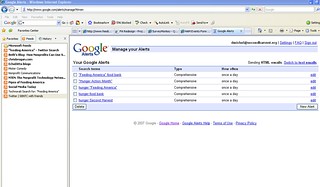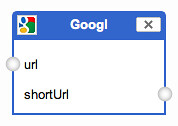Hector Cisneros
 When a person asks me what
I do for a living, I tell them I create content. Their second question is almost
always, “What kind of content?” “All kinds of digital content,” I answer, and
go on to explain this includes blogs, articles, press releases, videos, social posts,
pictures, podcasts, newsletters, email blasts and much more. “Sounds like a lot
of work," is the typical response. I then tell them it can be, but using the
right tools makes it easier. Also, engaging in this kind of work since 2007 has
also made me more efficient. The conversation usually continues along the line of:
"So if you use the right tools and gain experience, the job becomes much easier,
right?" And I reply “Of course.” Obviously I can’t automatically impart my
years of experience, but I can show you the
tools I use. I can explain why they’re useful and how they’ll save you lots of time
and, yes, money. Read on and learn about eight great content marketing tools that
are Google friendly.
When a person asks me what
I do for a living, I tell them I create content. Their second question is almost
always, “What kind of content?” “All kinds of digital content,” I answer, and
go on to explain this includes blogs, articles, press releases, videos, social posts,
pictures, podcasts, newsletters, email blasts and much more. “Sounds like a lot
of work," is the typical response. I then tell them it can be, but using the
right tools makes it easier. Also, engaging in this kind of work since 2007 has
also made me more efficient. The conversation usually continues along the line of:
"So if you use the right tools and gain experience, the job becomes much easier,
right?" And I reply “Of course.” Obviously I can’t automatically impart my
years of experience, but I can show you the
tools I use. I can explain why they’re useful and how they’ll save you lots of time
and, yes, money. Read on and learn about eight great content marketing tools that
are Google friendly. First of all, nothing is
more Google-friendly that an application that Google owns. This category could consist
of dozen of applications, but for the sake of brevity, I’ll stick to discussing
my primary, go-to, Google apps for content creation and leave the others for
another article. Here I include Blogger; Google Alerts; Google's
URL shortener, Goo.gl; and Send From Gmail. The non-Google applications
I love include: Hootsuite and its plug-in, Hootlet; Zemanta, a content
enhancer; Ginger, a great grammar/spelling checker; and Audacity
by SoundfForge, a super audio file editor. Let me start by discussing the Google
apps.
First of all, nothing is
more Google-friendly that an application that Google owns. This category could consist
of dozen of applications, but for the sake of brevity, I’ll stick to discussing
my primary, go-to, Google apps for content creation and leave the others for
another article. Here I include Blogger; Google Alerts; Google's
URL shortener, Goo.gl; and Send From Gmail. The non-Google applications
I love include: Hootsuite and its plug-in, Hootlet; Zemanta, a content
enhancer; Ginger, a great grammar/spelling checker; and Audacity
by SoundfForge, a super audio file editor. Let me start by discussing the Google
apps.
Blogger is a blogging platform (a direct competitor
to WordPress and others). From a writers’ point of view, it’s relatively easy to
learn and full-featured. It has wide industry support, which means you can add lots
of functionality from third parties. You can also customize the look
| Blogger (Photo credit: kuribo) |
and feel of
the blog with its built-in templates, third party templates, and HTML 5 coding.
It also supports building web pages, so it can also function as your primary
website. Many of the plug-ins are as easy as, pick an option. Simply answer a couple
of questions and click “Save” to install. All this can be handled right in the "Layout"
function of Blogger. It’s a robust product with built in analytics for measuring
article performance, sharing your articles with your social nets, engaging readers,
facilities for guest bloggers, plus much more. There are ample free tutorial videos
on YouTube and lots of free help on the web. All in all, Blogger is one of the top
five blogging platforms on the market, and it’s number two in overall user adoption.
Again, Google owns Blogger, so any articles published in Blogger are indexed
daily. This means they are automatically added to Google’s organic search engine
listings.
| gmail (Photo credit: Claude - 小科) |
Send From Gmail is a very useful plug-in for Chrome
that allows users to send a link to any webpage they’re currently looking at (a
similar plug-in is available for Firefox). This is very helpful when conducting
research, communicating with colleagues, or just quickly sending yourself a link
for something you're interested in. Before this app was available, I had to cut
& paste the URL of the web page I was on, and then type a short FYI of what
I was sending to myself (or others), so that the email wouldn’t get lost in the
daily barrage of incoming mail. I use this tool every day. It’s a great time saver
and has actually increased my productivity and communications with my partners.
| Google Alert for Hunger (Photo credit: cambodia4kidsorg) |
Google
Alerts is a
tool that searches through Google news for any key phrases you asked it for. These
alert searches return a list of news and blog articles that match the phase you
stored. It allows you to setup ongoing alerts that can be sent to you daily, weekly,
monthly or as they happen. Needless to say, if you're looking for quality content
to post to yours or your client's social nets, this tool becomes a great time saver.
I have Google Alerts set up for more than two dozen key phrases, so I never have
to actively look for content articles if I choose not to. Don't get me wrong, I
also subscribe to lots of blogs and other types of RSS feeds to find information,
but since Google Alerts is so easy to use, it’s become a mainstay in my research
arsenal.
Goo.gl is Google's URL shortener. Like many of its competitors,
it does an excellent job of taking long URL addresses (i.e., 45 characters long)
and shortening then to 13 characters.
| The goo.gl connector (Photo credit: bpedro) |
It produces this size URL no matter how long
the original address was. This is extremely important if you’re using Twitter or
you're trying to save space in a post for any of the top five social networks. On
top of that, Goo.gl also provides tracking information for every shortened URL you
create. It also keeps on tracking that shortened
URL for as long as the link is on the web. This means that I can track social post
for years after they have been posted. That’s right, years! I know you can also
create shorteners with other platforms. There’s a good one built in Hootsuite that
I use a lot. However, I’ve found that over the years, that periodically these other
shorteners stop working. So my fall back, go to app, is always Goo.gl. If you’re
looking for a URL shortenter that consistently works, tracks clicks forever, and
is free, try Goo.gl, you won’t be disappointed.
 Zemanta is a Chrome, Firefox and Opera plug-in.
It works directly inside Blogger or WordPress platforms when you’re blogging. Zemanta
offers up additional content to dress up your blog titles. This content is automatically
filtered to match the keywords in your blog post. It will provide royalty free pictures
and related article links. This will enhance your articles’ look and connections
to the outside world. What Zemanta does best, is make it relatively easy to turn
an ordinary looking blog in to a very professional multimedia blog post. When you
couple Zemanta with the built in features of Blogger (which include other Google
apps such as YouTube and Picasa) you end up with a powerful publishing tool that
allows you to compete with any other blogging platform on the web.
Zemanta is a Chrome, Firefox and Opera plug-in.
It works directly inside Blogger or WordPress platforms when you’re blogging. Zemanta
offers up additional content to dress up your blog titles. This content is automatically
filtered to match the keywords in your blog post. It will provide royalty free pictures
and related article links. This will enhance your articles’ look and connections
to the outside world. What Zemanta does best, is make it relatively easy to turn
an ordinary looking blog in to a very professional multimedia blog post. When you
couple Zemanta with the built in features of Blogger (which include other Google
apps such as YouTube and Picasa) you end up with a powerful publishing tool that
allows you to compete with any other blogging platform on the web.
Hootsuite and its plug-in, Hootlet, for Chrome and
Firefox, is a social network aggregation/management tool that allows you to research
content, schedule when that content is posted, engage followers, and follow new
prospects. You can manage multiple social net subscriptions for yourself or multiple
clients for Twitter, Facebook, LinkedIn, Google+, Foursquare, WordPress and Mixi.
You can also manage multiple team members, assign accounts, post to multiple profiles
and monitor the team members work. All this and more can be handled with this platform.
Hootsuite also has built-in tutorials, called Hootsuite University (the first few
lessons are free), and extensive analytics (again, you get one free and pay for
the
rest). They even have a "certification
program" coupled with a job board for certified Hootsuite social media graduates
to find jobs. This product has wide industry
support because it has been around for a
sometime. There are a lot of add in apps for Hootsuite and its functionality is
expandable to enterprise levels. The entry level program is free and the pro version
starts at $8.99 for two team members. The pro version allows you to manage up to
100 social profiles. The enterprise level supports unlimited profiles and team members,
and also has advanced functionality and support. If a person were to ask me what
social networking product I couldn’t live without, it would be Hootsuite.
Ginger is one of the best spelling and grammar
checkers I’ve found to date. It catches
grammar and word usage mistakes that Microsoft
Word often misses. It can be used as a plug-in for MS Windows, Android, iOS, Chrome,
along with MS Word, Gmail, Outlook IE, Chrome, Firefox, Safari, and more. Its proofreader
is second-to-none. The free version has a tendency to ask you to upgrade a little
too frequently, but the features of the paid version make upgrading worth it. It
can provide live corrections, and context definitions, translate 40 different language
and — my favorite — it can read back your text so you can hear how your content
sounds. I’ve been using Ginger for about four years, and I really couldn't do my
job as well without it. The basic package is $3.90 a month (when paid annually)
and the premium version can be had for $7.50 a month (again, when paid annually).
This is a product I highly recommend. If you write for a living, this product can
be your blogging buddy.  Audacity,
created by Sony’s SoundForge, is an audio file editing application. This isn’t some
low end MP3 editor. It's a full-featured sound file editor that supports editing
and converting many audio file formats. You can cut & paste to your heart's
content, compress, merge, expand and layer audio files all day. Take it from me,
for being a free application, this program is the bomb. There is a large third party
add-on support community and you can also purchase third party add-ons to further
extend it power. Like most free apps, you’ll need to spend some time gathering and
learning from educational material to figure out how to use it. You can find
Audacity,
created by Sony’s SoundForge, is an audio file editing application. This isn’t some
low end MP3 editor. It's a full-featured sound file editor that supports editing
and converting many audio file formats. You can cut & paste to your heart's
content, compress, merge, expand and layer audio files all day. Take it from me,
for being a free application, this program is the bomb. There is a large third party
add-on support community and you can also purchase third party add-ons to further
extend it power. Like most free apps, you’ll need to spend some time gathering and
learning from educational material to figure out how to use it. You can find
There you have it, eight
great content marketing tools that are powerful, useful and Google- friendly. They’re
some of the best productivity content creation and management tools you can find.
All have free versions and again, they’re all Google-friendly (i.e., they’re Google
Search-friendly and “play well” with such other Google applications as Chrome, Android,
YouTube, Google+, Picasa and more). I use these applications to create our and our
clients’ content on a daily basis. Google fully understands its own products, which,
by default, makes them Google-friendly. Additionally, we’ve tested the other
four above-mentioned non-Google applications for years, and have found them to
be as compatible and Google-friendly as well.
If you enjoyed this article, please share it with friends, family co-workers and associates. If you have something to add or a difference of opinion, place them in the Comments section. It has been my pleasure sharing this information with you.
That's my opinion; I
look forward to hearing yours.
If you like this article, you can find more by typing “content marketing” or "Internet marketing" in the search box at the top left of this blog.
If you like this article, you can find more by typing “content marketing” or "Internet marketing" in the search box at the top left of this blog.
If you would like a free copy of our book, "Internet Marketing Tips for the 21st Century," please fill in the form below and we will send you this free eBook. Your information is always keep private and is never sold.
Hector Cisneros is a partner, COO and Social Media Director for the award-winning, Internet-based marketing firm, Working the Web to Win, in Jacksonville, FL. You can connect with him on Twitter, Facebook, Google+, LinkedIn, and YouTube. He’s also the co-host of BlogTalkRadio’s “Working the Web to Win,” where he and Working the Web to Win’s co-founder, Carl Weiss, make working the web to win simple for every business.
Related articles


















If your company isn't consciously making an effort to please Google then you will feel the wrath of the 800 lb gorilla in the room.
ReplyDeleteThis comment has been removed by a blog administrator.
ReplyDelete